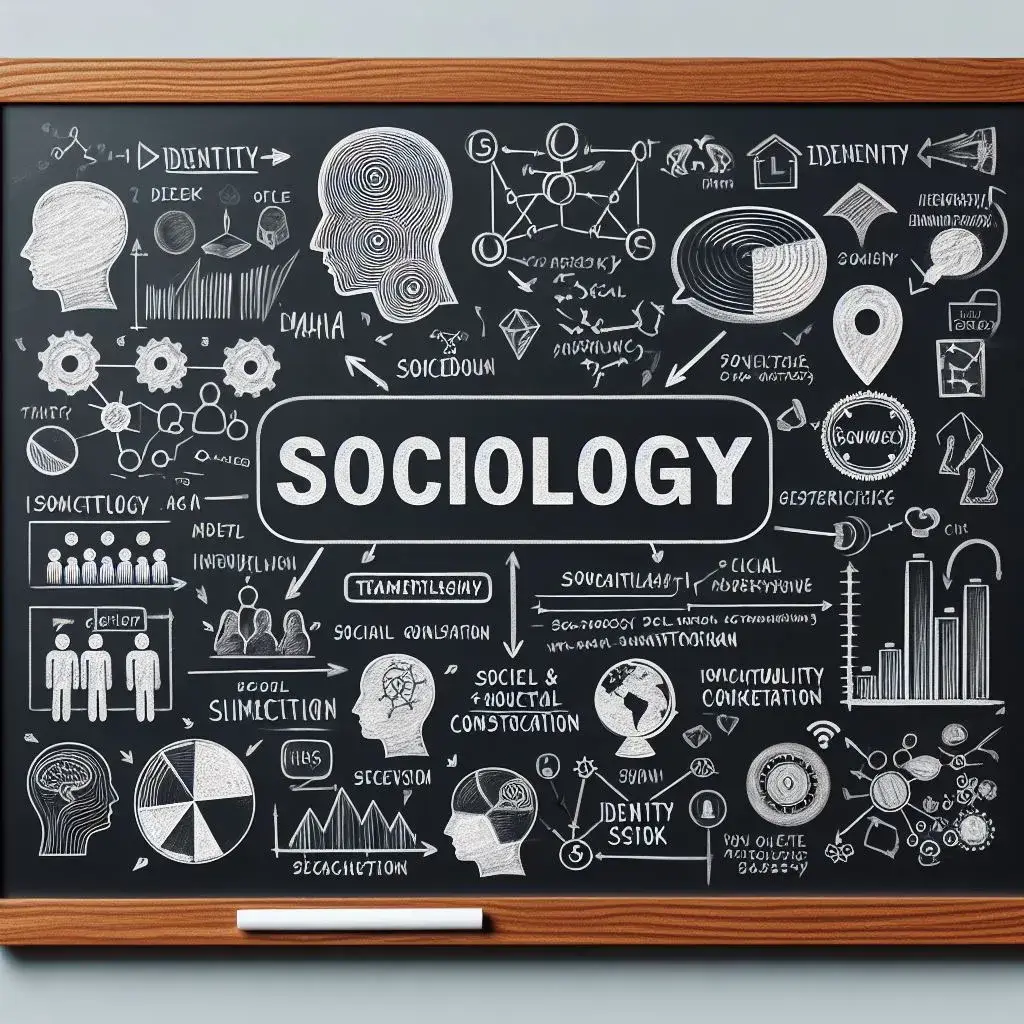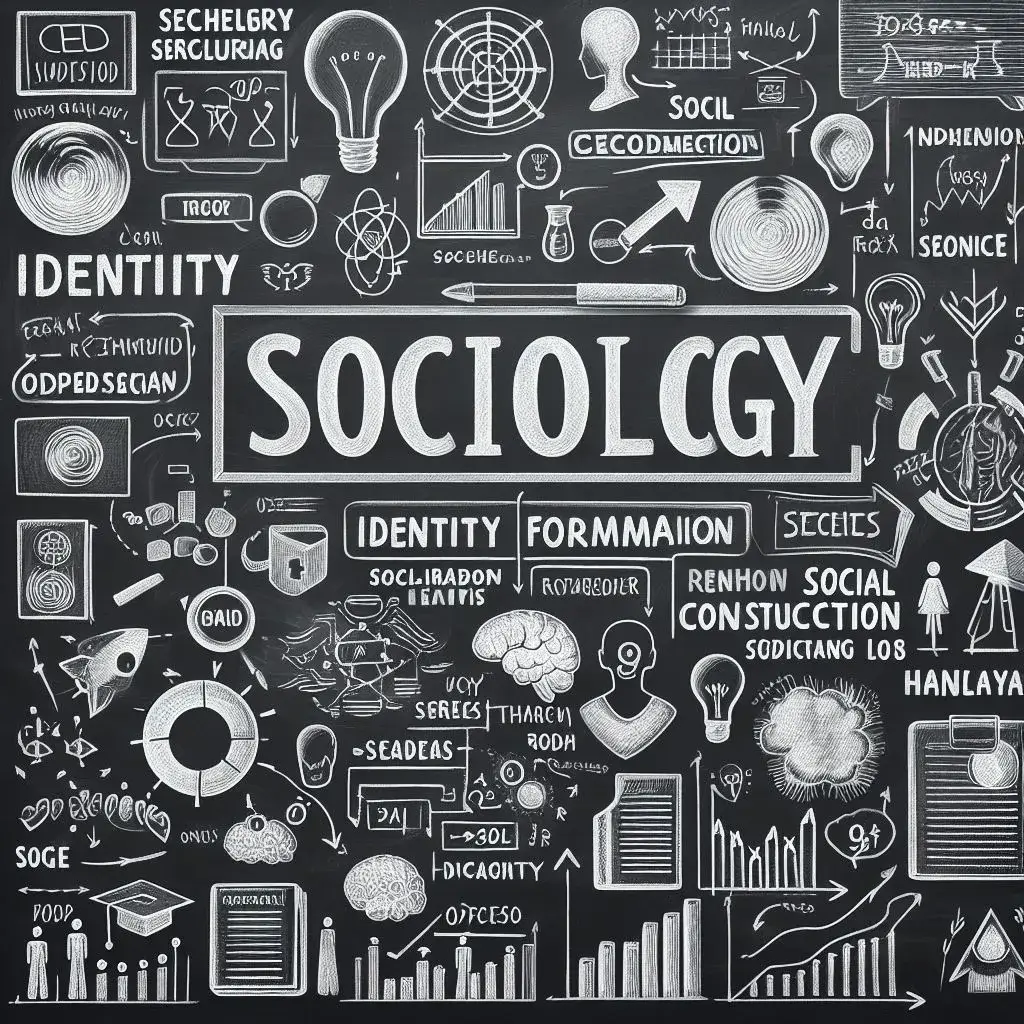Identity formation in sociology? That’s the big question at the heart of sociology’s study of identity. We’re talkin’ about gettin’ down to the nitty-gritty of who you really are and how you fit into the crazy world we live in. It’s like connectin’ the dots between your personality and the society you live in.
So, let’s dive deep into what identity means in sociology and why it’s key to understandin’ ourselves and our peeps.
What is the identity theory in sociology?
In sociology, identity refers to the way individuals perceive themselves and the way they are perceived by others. It encompasses various aspects such as race, gender, sexuality, religion, and socioeconomic status. Identity is not just about individual characteristics, but also about the social categories that people belong to and the meanings attached to those categories.
For example, a person’s identity as a woman in a male-dominated society can affect how she is treated and perceived by others. She may face discrimination, bias, and stereotypes based on her gender, which can impact her self-esteem, confidence, and opportunities.
Identity is not just about who we are, but also about how we are perceived by others. Our identities are shaped by the social categories we belong to and the meanings attached to those categories.
A practical real-life story related to identity in sociology is that of a transgender woman named Sarah McBride. Sarah was born male but identified as female from a young age. Despite facing discrimination and prejudice, she became an activist for transgender rights and even spoke at the Democratic National Convention in 2016.
Sarah’s identity as a transgender woman has shaped her experiences, opportunities, and challenges, and she has become a symbol of resilience and courage for many in the LGBTQ+ community.
Research has shown that identity is a complex and multifaceted concept that can impact various aspects of a person’s life, including mental health, well-being, and social relationships.
For example, a study published in the Journal of Youth and Adolescence found that adolescents who felt a strong sense of belonging to their ethnic group had higher self-esteem and lower levels of depressive symptoms compared to those who did not feel a strong sense of belonging (Umaña-Taylor & Updegraff, 2007).
Another study published in the Journal of Personality and Social Psychology found that individuals who had a strong sense of identity were more likely to engage in prosocial behavior, such as volunteering and helping others, compared to those who did not have a strong sense of identity (Stone & Cooper, 2009).
How do sociologists think about identity?

Sociologists view identity as a social construct that is shaped by cultural and social influences. Some key aspects of how sociologists think about identity include:
Identities are formed through social interaction and relationships with others. They develop as individuals view themselves in relation to the various social groups and categories they belong to, such as gender, class, ethnicity, occupation, etc.
Identities are multi-faceted. People have different identities – like parental, professional, religious – that interact and contribute to one’s overall sense of self. Which identities feel most salient depends on the social context.
Identities change and evolve over time as people move between different social environments and life stages. Events like marriage, career changes, immigration can impact how one sees themselves.
Cultural backgrounds, norms and expectations play a role. Societies influence which identities are encouraged or discouraged. For example, individualism vs collectivism in different cultures.
Power structures in society, like racism, sexism, classism, impact identity formation. Marginalized groups may experience identity issues due to oppression and social stigma.
Globalization and mobility impact identities as exposure to different value systems increases. People today reconstruct identities drawing from various cultural repertoires.
What are the three types of identity in sociology?
So in summary, the three main types of identity that sociologists discuss are:
Personal identity – based on individual traits and experiences
Social identity – based on membership in social groups and categories
Cultural identity – based on identification with beliefs, values and practices of a culture.
Personal Identity
Personal identity refers to an individual’s unique sense of self, including their beliefs, values, and personality traits. it’s all about the experiences you’ve been through, the people you’ve kicked it with, and how you see yourself, ya know? It’s like the foundation of your ego, the cornerstone of your self-esteem.
Social identity
Social identity, man, that’s when you’re figuring out who you are based on where you fit in society. It’s like, what groups you roll with – your race, gender, religion, and all that stuff. But watch out, ’cause it can also be a source of drama, discrimination, and feeling left out.
Cultural identity
Collective identity refers to the shared sense of belonging and identity among members of a social group. It’s like a vibe you share with others who’ve been through similar stuff. It’s all about that sense of belonging, ya feel? But hey, it can also spark beef between different groups when they clash over their identities.
What is identity formation in sociology?
Identity formation is the process by which individuals develop a sense of self that is based on their experiences, interactions with others, and social and cultural contexts. In sociology, identity formation is viewed as a social process that is shaped by a variety of factors, including social structures, institutions, and cultural norms.
Sociologists study identity and how it is formed through extensive research. A 2002 study by Hendrix and Huebner of the University of Virginia analyzed surveys of over 1,000 Americans and found links between religious participation and strength of religious identity.
Additionally, a 2018 paper by Taylor and Usborne of Birmingham City University interviewed 30 British citizens of different backgrounds and uncovered trends in how life experiences like motherhood, career changes, and cross-cultural interactions shaped evolving senses of self over time. Overall, this research enhances understanding of the multifaceted and environmentally influenced nature of personal identity.
There are several stages of identity formation that sociologists have identified.
The first stage is childhood socialization, during which children learn about their culture, values, and beliefs from their family, peers, and other social institutions. Children also begin to develop a sense of self during this stage, based on their interactions with others and the feedback they receive.
The second stage of identity formation occurs during adolescence, which is a time of significant physical, emotional, and social changes. Adolescents may experiment with different identities, such as trying out new clothing styles, hobbies, or social groups. They may also begin to question their beliefs and values, and develop a more complex understanding of their own identity.
The third stage of identity formation occurs in early adulthood, during which individuals may settle into a more stable sense of self. This is often a time of greater independence and self-reflection, as individuals establish careers, form romantic relationships, and make other important life decisions.
Throughout the process of identity formation, individuals may face challenges or conflicts that can impact their sense of self.
For example, they may encounter discrimination or prejudice based on their social identity, or they may struggle to reconcile different aspects of their identity. Sociologists study the ways in which these challenges impact identity formation and how individuals navigate them.
Refrences
Umaña-Taylor, A. J., & Updegraff, K. A. (2007). Ethnic identity and self-esteem among Latino adolescents: The role of gender and generational status. Journal of Youth and Adolescence, 36(6), 761-773.
Stone, J., & Cooper, H. (2009). The meaning of doing good: The nature and consequences of prosocial behavior. Journal of Personality and Social Psychology, 97(2), 228-242.
Burke, P. J., & Stets, J. E. (2009). Identity theory. Oxford University Press
Tajfel, H., & Turner, J. C. (1979). An integrative theory of intergroup conflict. In W. G. Austin & S. Worchel (Eds.), The social psychology of intergroup relations (pp. 33-47). Brooks/Cole.McAdams, D. P. (2001).
The psychology of life stories. Review of General Psychology, 5(2), 100-122.Giddens, A. (1991).
Modernity and self-identity: Self and society in the late modern age. Stanford University Press.Woodward, K. (2002). Identity and difference.
Sage Publications.Jenkins, R. (2004). Social identity. Routledge.


